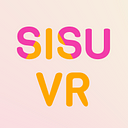Businesses in virtually every industry are recognizing the potential benefits of extended reality, which includes virtual reality (VR).
From team building to product design, immersive technology can simulate realistic environments and offer valuable insights for an organization.
Let’s explore five major industries harnessing the power of VR.
- Engineering
Depending on the engineering sector, specialists can plan, design, and conduct experiments in a VR environment.
For instance, the civil engineering department at the University of Texas at Arlington has harnessed VR to demonstrate working in a construction zone.
Immersive simulations enable professionals to safely train without risk of physical injury.
In another example, by introducing VR into their project work, the Boeing aircraft company was one of the first companies to revolutionize aerospace engineering. In fact, their engineers used the power of VR to analyze which build techniques were best suited for designing the Boeing 737 MAX 10.
2. Healthcare
VR has transformed the healthcare industry in more ways than one. For example, the technology has been used for therapy, allowing healthcare professionals to treat patients’ symptoms effectively.
Alongside using VR for therapy purposes, Cedars-Sinai Medical Center and Samsung leveraged immersive platforms to help manage patient pain. Furthermore, at Stanford’s Lucile Packard Children’s Hospital, VR has provided invaluable anatomical insight during the pre-surgery process.
3. Real Estate
Finding your dream house and moving can be an arduous and time-consuming process. However, the real estate industry has embraced immersive technology to enable buyers to view properties without ever leaving their own homes.
VR has made it immensely easier for individuals to scope out living spaces remotely.
For instance, Matterport has leveraged interactive 3D virtual tours. By providing clients with a 360-degree view of a property, agents are provided greater opportunity to close more deals.
4. Higher Education
From capturing engaging lectures to enabling virtual site visits, VR has been proven to be a remarkable tool for learning.
In 2022, Queen Mary University opened their doors to a new world of learning for its medical students. Offering lectures in the metaverse, the university has enabled remote students with a more feasible method to connect with their professors and peers, and ultimately feel less isolated.
In addition, Arizona State University launched its Learn Lab with Dreamscape. Using VR, students are able to engage with school subjects in a unique and more meaningful way as compared to traditional learning methods.
Finally, EAB’s offers virtual tours of the world’s most prestigious universities, like Harvard, Princeton, Yale, and Columbia, allowing students to explore college options instantaneously.
5. Corporate Learning and Development
VR’s traction is particularly apparent in corporate learning and development (L&D). Companies are realizing the potential benefits of VR learning.
For example, Bank of America and Walmart have effectively trained their workforce using VR experiences.
Immersive experiences have opened the door for professionals to develop new skills in a cost-effective and fail-safe manner.
Furthermore, Sisu VR offers VR training in areas such as harassment prevention and active shooter response.
As demonstrated by a recent PwC study, VR training can boost learning retention and reinforce soft skills. Indeed, VR can be an effective tool to accelerate learning and enable learners to grasp concepts up to four times faster.
From engineering design to healthcare and real estate services, VR has proven to be an invaluable platform. Many industries beyond the ones listed in this article are already leveraging the potential of VR and its positive effects on operational efficiency.
Explore potential use cases of immersive experiences with Sisu VR today! Learn whether HR and safety (e.g. harassment, discrimination, bullying, active shooter) training using VR will bolster your company’s goals.
